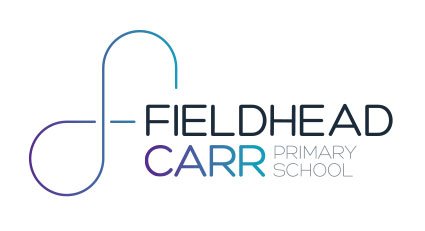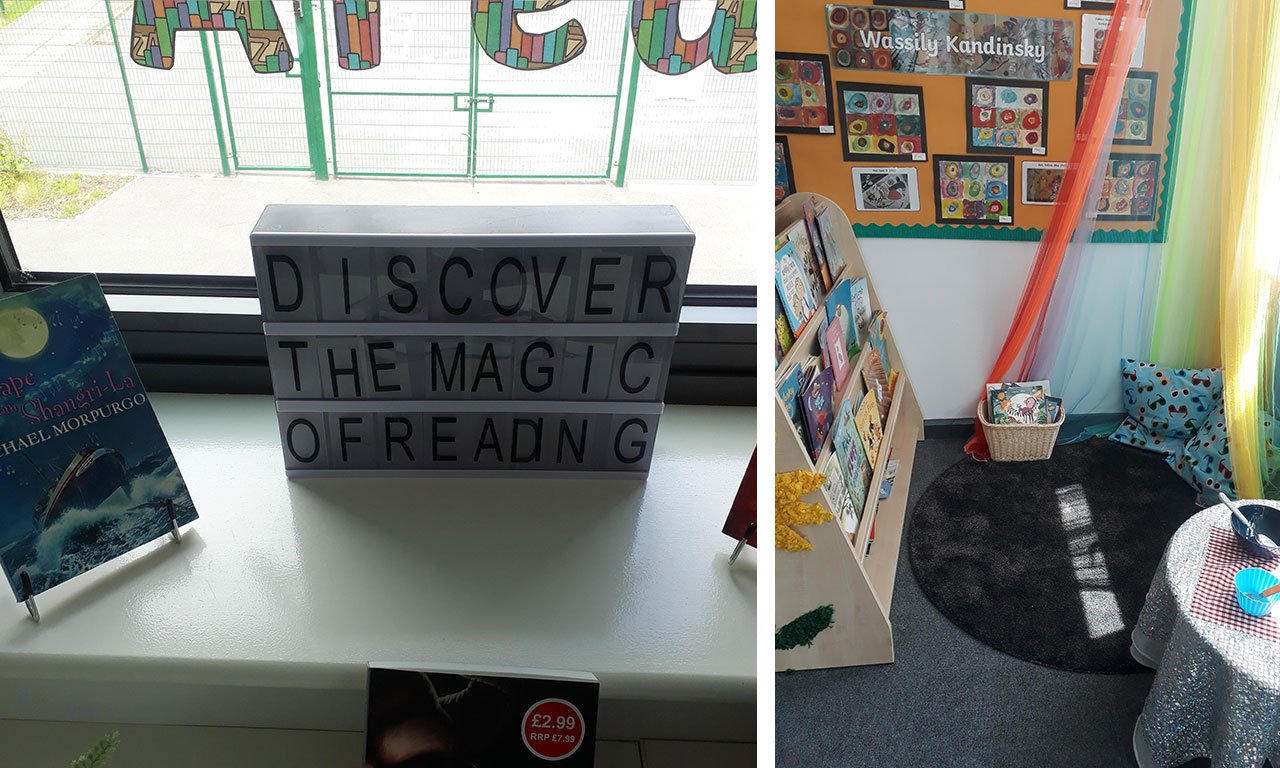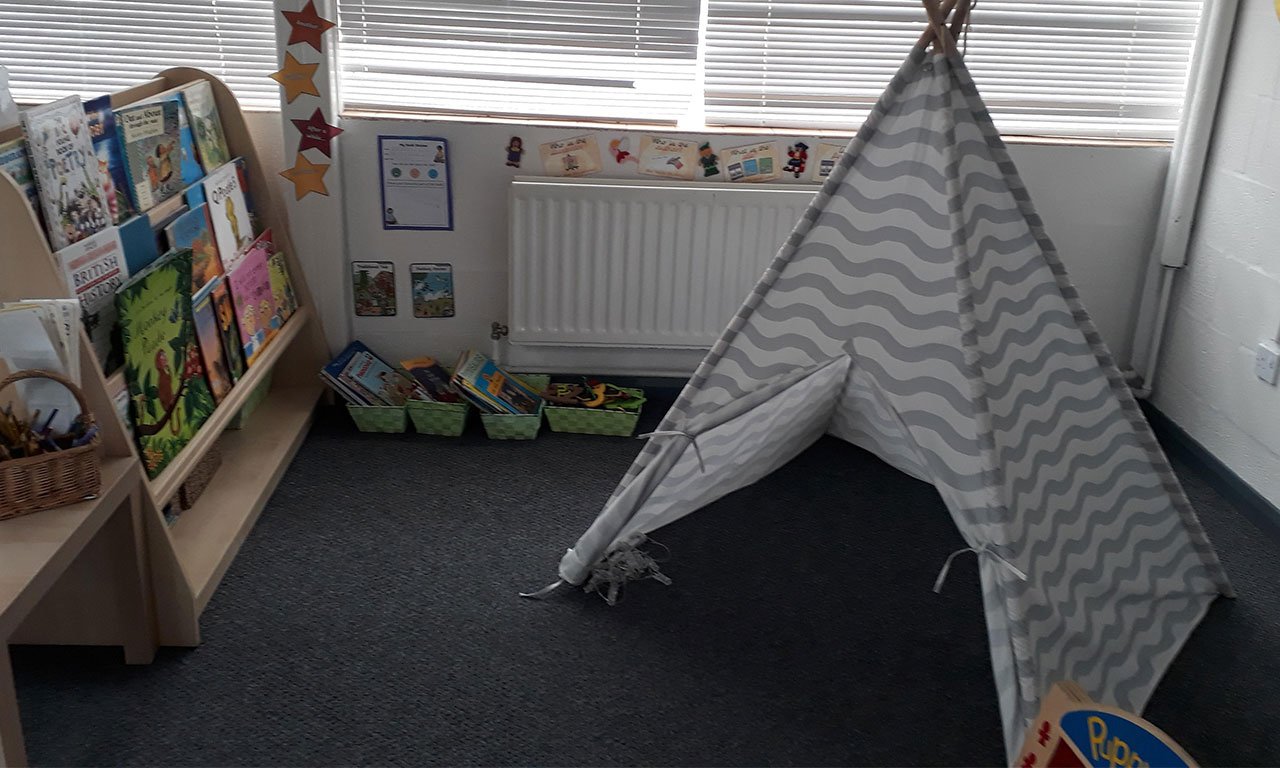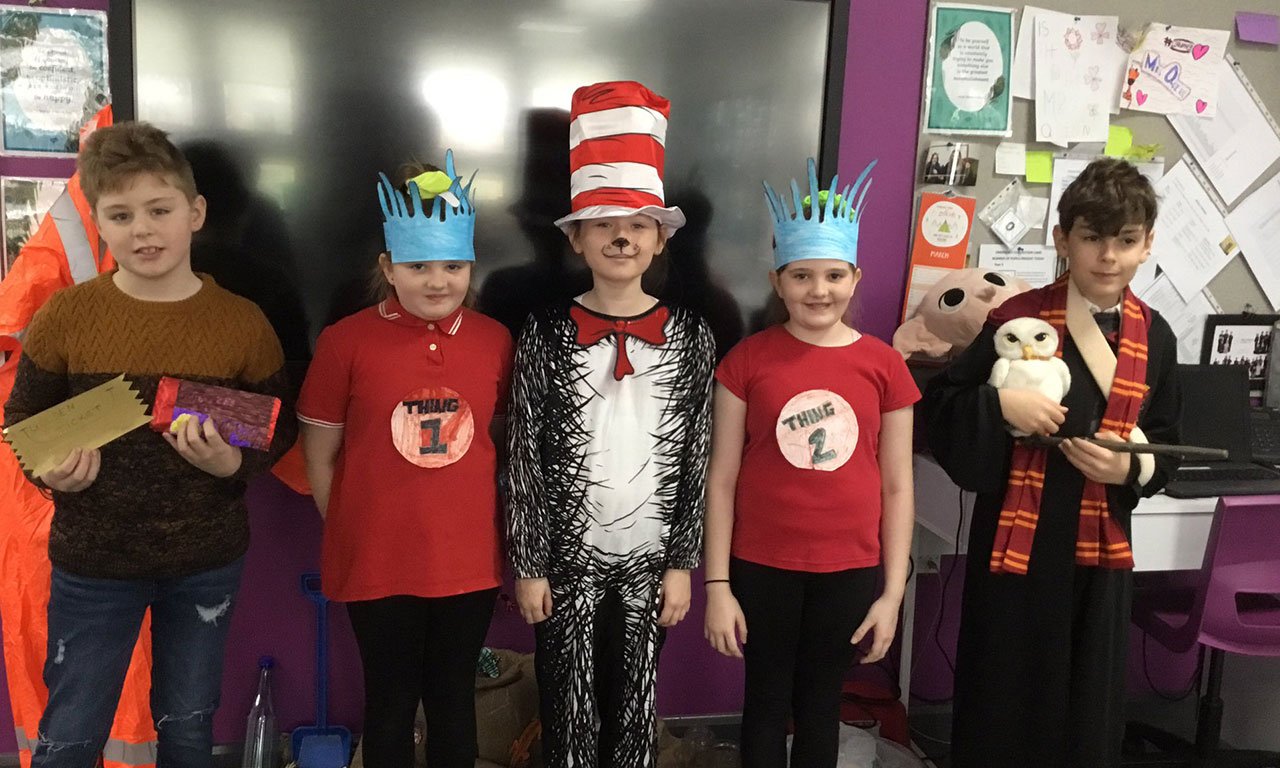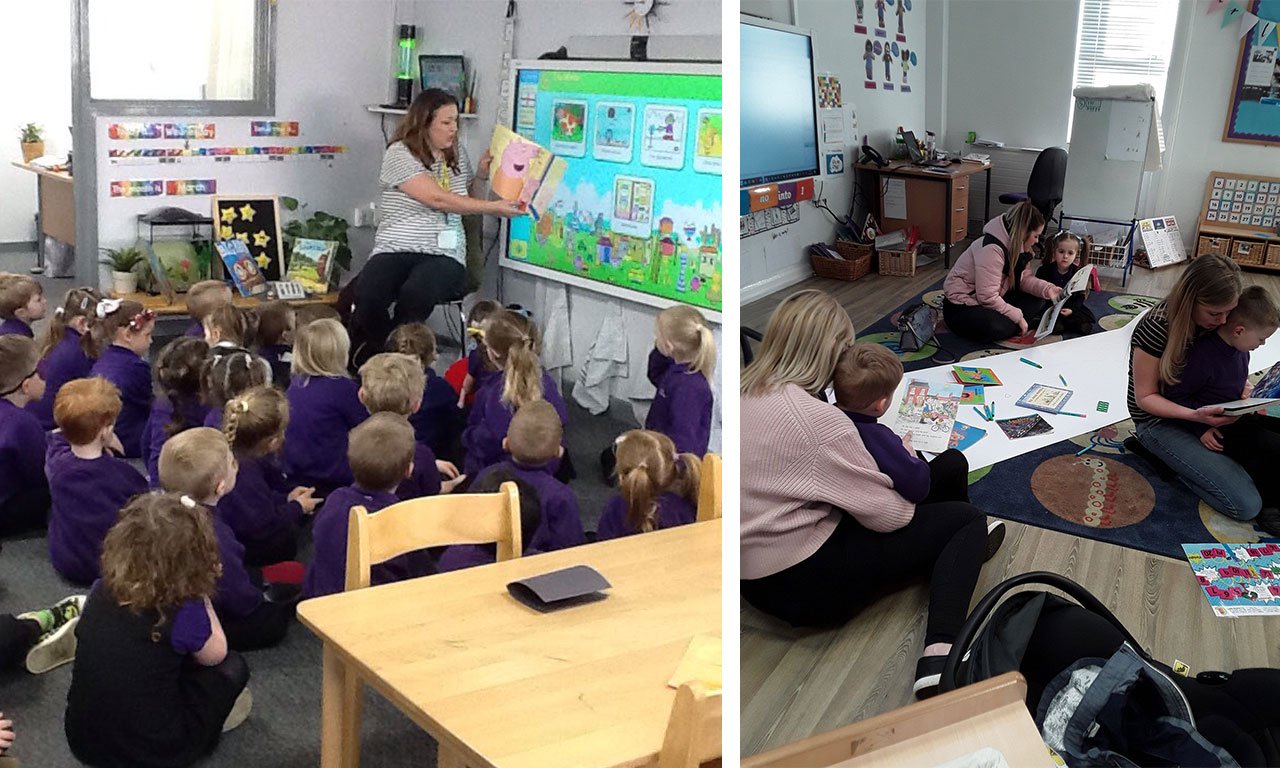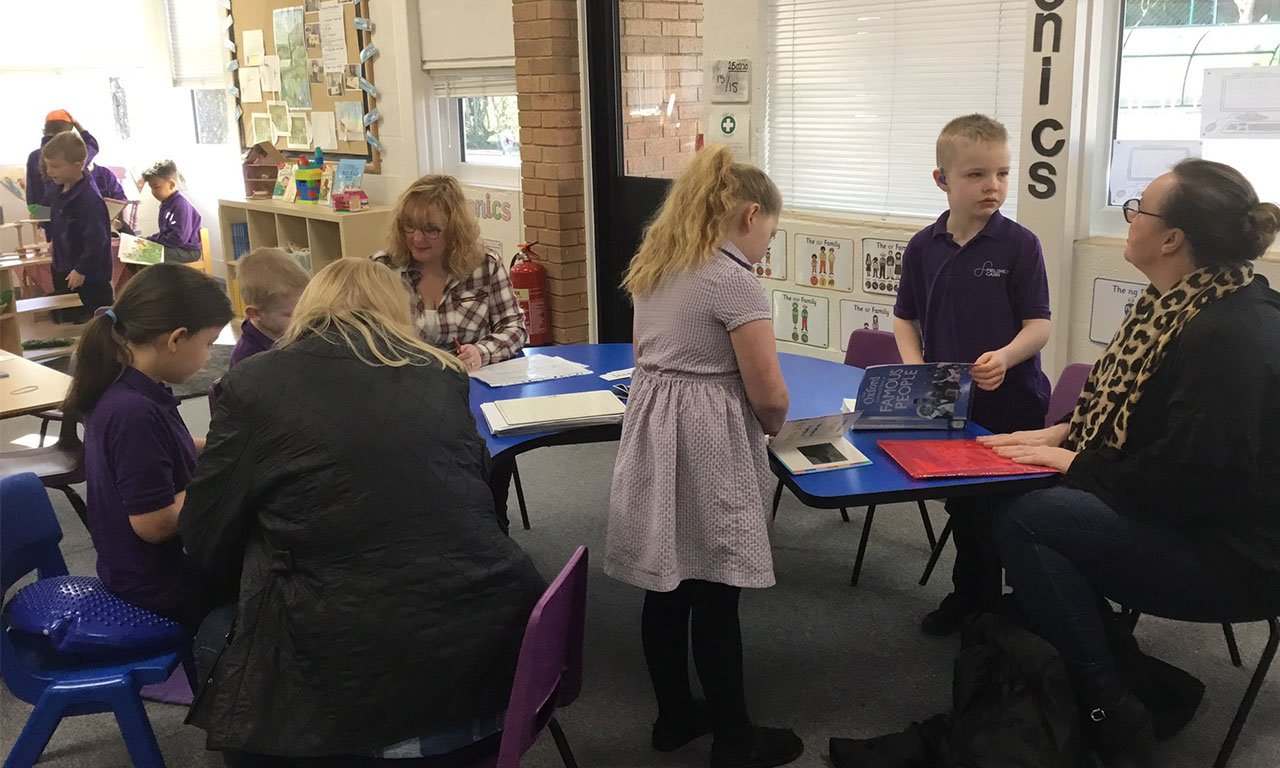English
The Curriculum at FHC is designed to ensure that children become confident writers. We strive to help our children develop into articulate and imaginative communicators, who are well-equipped with the basic skills they need to become life-long learners; English learning is key in this. We aim to ensure all of our children develop a genuine love of language and the written word, through a text-based approach; this links closely to the way we teach reading, as the text that we use in writing lessons, where possible, is the same text as the one that we use within our reading lessons. Careful links are made across the curriculum to ensure that children’s English learning is relevant and meaningful: where possible linking our reading, writing and the topic that we are covering in History and Geography. We ensure that children develop an understanding of how widely writing is used in everyday life and, therefore, how important and useful the skills are that they are learning.
How we develop confident writers
To ensure we have strong, confident writers we:
- secure effective phonics knowledge
- embed story language and vocabulary through talk for writing
- support the structure of writing using blueprints
- through the box plan method teach high quality spag skills as part of each writing block
Talk for Writing

We have chosen Talk for Writing at Fieldhead Carr Primary School because it is a powerful pedagogy that is based on the principes of how children learn. At Fieldhead Carr Primary School, we want to ensure that from an EARLY AGE, EVERY child has the opportunities to listen to, enjoy and internalise high quality texts. We know that by learning quality texts ‘off by heart’, children will always have an ‘internal bookshelf’ to call upon to support their own imagination, ideas and understanding of reading and writing.
Blueprints
We use Christopher Booker story planning blueprints and Sue Palmer’s non-fiction planning blueprints to support children’s structure for writing.
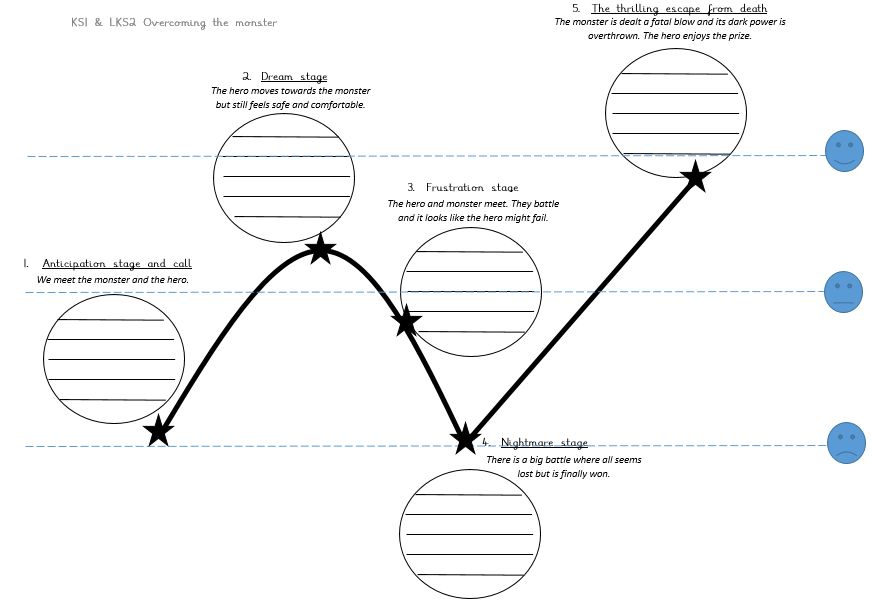

Reading
At Fieldhead Carr Primary School, the teaching of reading is a key driver and at the very core of our curriculum. It is our intention to ensure that by the end of their primary education, all pupils are able to read fluently, and with confidence, in any subject in their forthcoming secondary education. It is our intention that over their 8 year journey at Fieldhead Carr, children are read to, enjoy, discuss and work with a selection of core books. Each year group are immersed in a wide range of text types and diverse themes. They are inspired by a range of authors and poets and exposed to a balance of new and classis literature, creating a living library inside the child’s minds which will give them a good grounding for independent reading in the future. Books which create mirrors and windows that reflect the realities of the children in our classrooms and beyond. This is the Fieldhead Carr Canon of Literature.
Reading Progression of Skills
Reading Vipers
The children learn key comprehension skills in Key Stage 1 and Key Stage 2. We use the VIPERS acronym to help us with this. Through these skills the children are able to confidently discuss and answer questions about a wide range of texts. At home you can also use the reading VIPERS to help you support your child’s comprehension; in your child’s reading record there are some VIPERS question prompts for you to use.

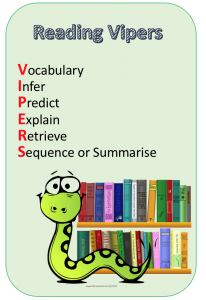
‘Read at Home’ reading lists
Download our recommended reading lists for each year groups. For more ideas on books to read with your children at home, please speak to your child’s class teacher.
Throughout the academic year there are lots of exciting reading events happening in school, such as World Book Day, sponsored reads and sessions where parents can come into school and read with their children.
Spelling, Punctuation and Grammar
Spelling, Punctuation and Grammar underpins our writing and we teach SPAG to link closely to our writing. We believe that the learning of and mastery of a high level of Standard English is vitally important to enable our children to have the best start to their educational journey.
Click below to see the grammar taught in each year group with an explanation of the terminology used in each year group.
The following links will show you the statutory word lists for years 1 and 2, 3 and 4 and 5 and 6.
As well as learning to spell the below words, we use Spelling Shed to support our teaching of the wider spelling curriculum.
Interventions for Reading and Writing
All children progress in reading and writing at different rates and some children benefit from interventions to secure key skills. We use:
- Lexia
- Little Wandle ‘Keep up’ and ‘Catch up’ session
- Alpha to Omega
- Small group handwriting
- Tailored teacher-led small group interventions
Websites to support English learning at home:
- Spelling Shed https://www.spellingshed.com/en-gb
- BBC website https://www.bbc.co.uk/bitesize/topics/zhrrd2p
- Topmarks https://www.topmarks.co.uk/
- Oxofrd Owl https://home.oxfordowl.co.uk/reading/
- Love Reading 4 Kids https://www.lovereading4kids.co.uk/
